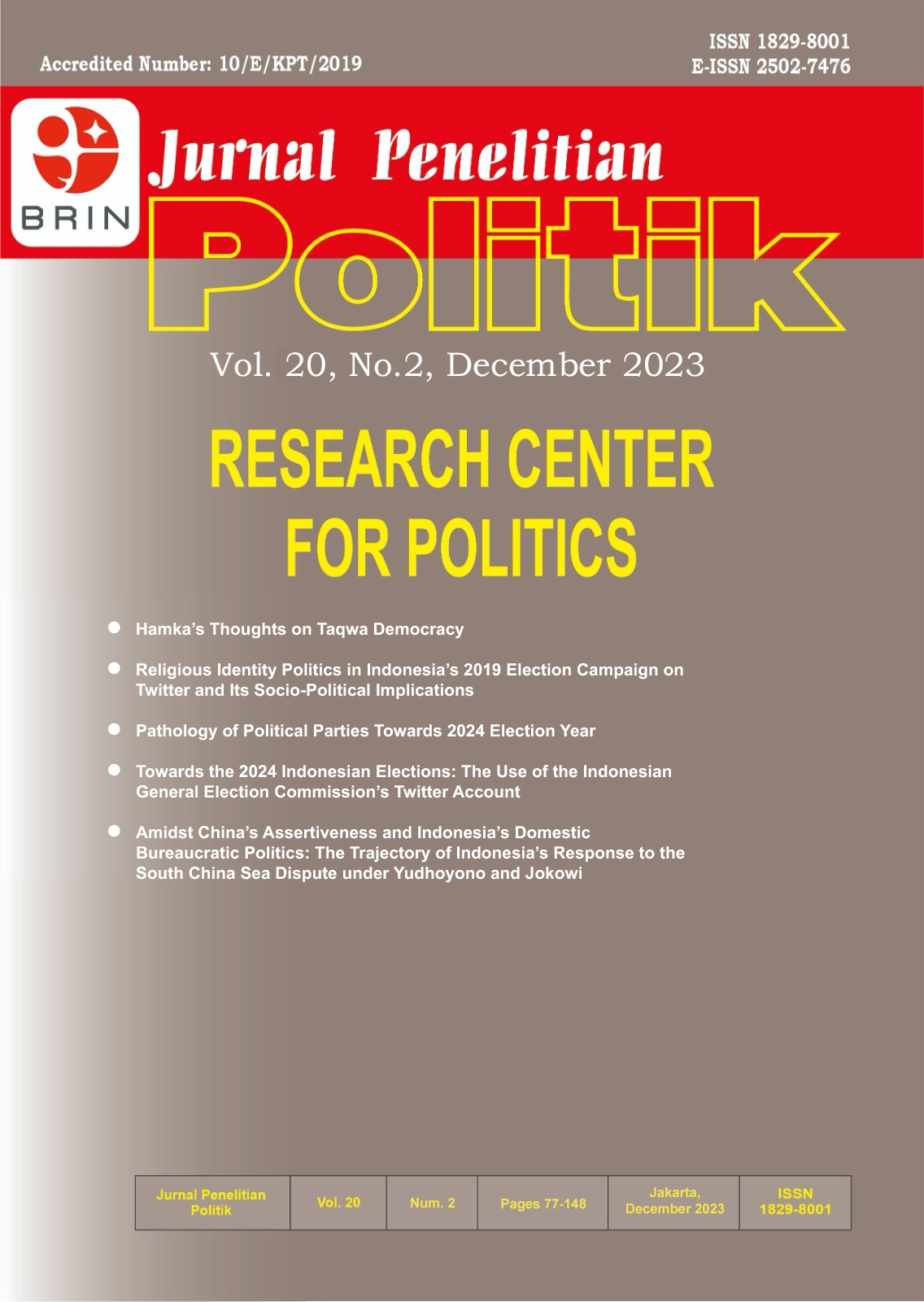RELIGIOUS IDENTITY POLITICS IN INDONESIA’S 2019 ELECTION CAMPAIGN ON TWITTER AND ITS SOCIOPOLITICAL IMPLICATIONS
DOI:
https://doi.org/10.14203/jpp.v20i2.1497Keywords:
Identity Politics, Elections, Hate Spin, Democracy, Sentiment Analysis, ConstructivismAbstract
This paper explains the use of hate spin as a tool of identity politics in the presidential elections 2019 on Twitter by
hate spin agents. Used CherianGeorge’s hate spin concept, which includes tactical flexibility, distributed efforts, and
symbolic contention, and the tweets were analyzed using sentiment analysis. According to the findings of sentiment
analysis, three variables are being leveraged by hate spin agents on Twitter during the 2019 presidential election
campaign. After training test data, tweets were dominated by negative sentiment; tweets with hashtag abundant
resulted in 807 negative and 323 positive, with a Naïve Bayes model of 0.995 (99.5%). Hate spin campaigns
have negative consequences for Indonesia and the country’s democracy because they foster sharp differences
and intolerance toward the identities of other groups, causing societal divisions that have the potential to lead to
identity conflict, genocide, or national division if not managed well and taken seriously by the government and the
nations itself
Downloads
Published
How to Cite
Issue
Section
License
Copyright (c) 2023 Author(s)

This work is licensed under a Creative Commons Attribution-ShareAlike 4.0 International License.

